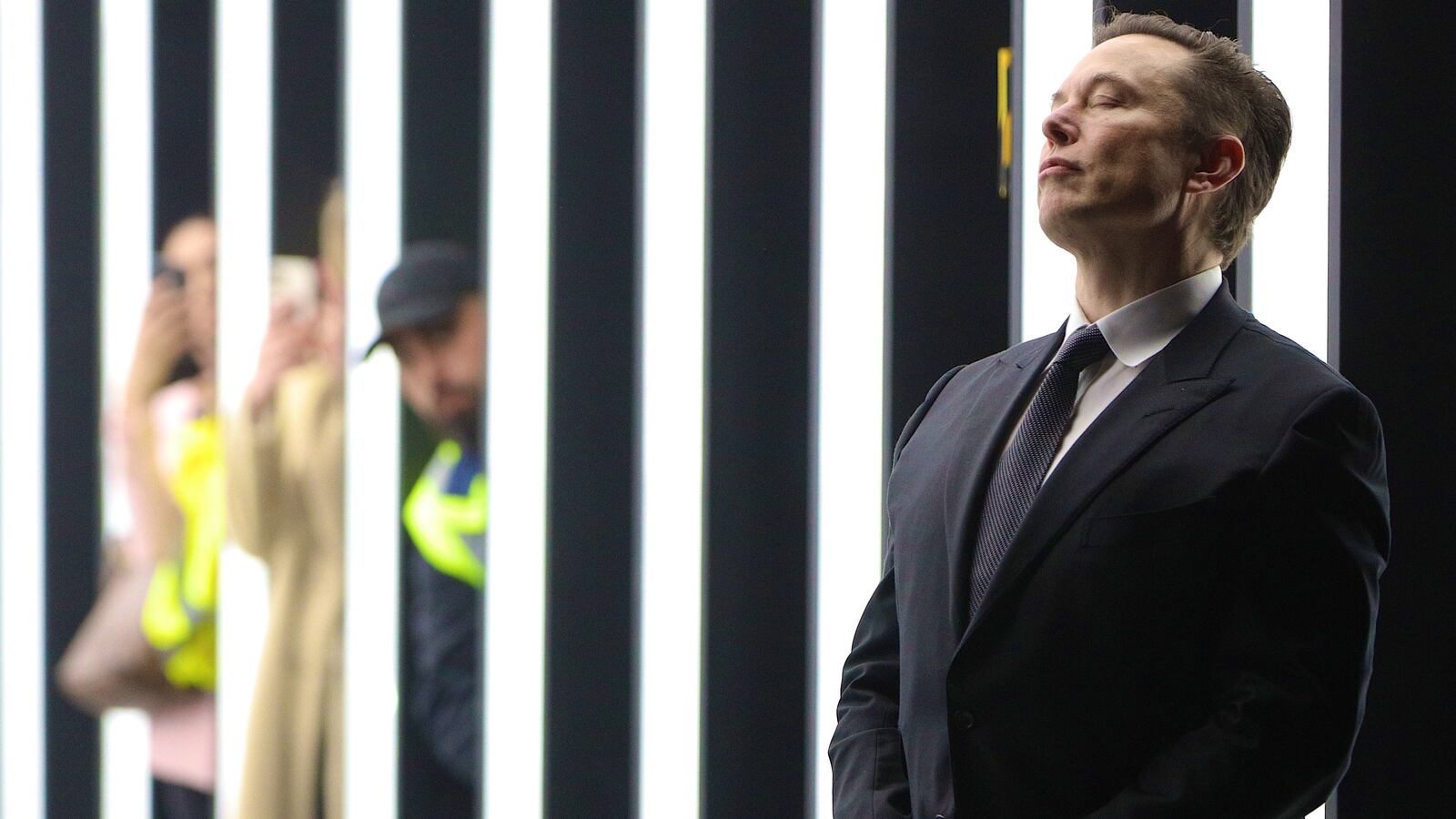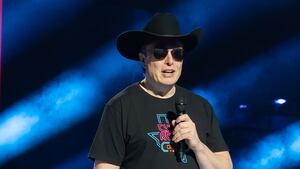Elon Musk sent shockwaves through the market on Thursday after submitting a proposal to fully take over Twitter, raising the possibility that the platform could soon be privately owned by one of its biggest shitposters.
Whether to take Musk seriously is harder to say—though there are certainly reasons to remain skeptical about the offer.
His proposal was priced at $54.20 per share, which includes the digits 420, a number associated with marijuana that Musk has used as frequent fodder in his online trolling.
“My conclusion,” tweeted billionaire Mark Cuban, in pointing out the apparent reference, “[Musk] is fucking with the SEC.”
Another possible clue: Musk’s filing with the Securities and Exchange Commission on April 13 is non-binding and includes a clause that would allow him to “to withdraw the Proposal or modify the terms at any time.” That language, though legally standard, could give him wiggle room to renege if he so chooses.
Twitter’s board of directors may also implement a “poison pill” that would prevent him from acquiring a substantially larger stake.
Musk has a track record of not following through on announced agreements. This month, for instance, after he disclosed a 9.2 percent ownership stake in Twitter, the company offered him a seat on its board. He accepted, and other board members tweeted out cheery messages welcoming him.
Then, over the weekend, the social media company’s CEO, Parag Agrawal, announced that Musk had changed course at the last minute.
“Elon’s appointment to the board was to become officially effective 4/9, but Elon shared that same morning that he will no longer be joining the board. I believe this is for the best,” he wrote.
Daniel Ives, a managing director at Wedbush Securities, said that in spite of Musk’s history, he thinks the Twitter deal will happen: “We believe this is a serious offer… and it’s a soap opera that ultimately ends in Musk owning Twitter.”
Though he is worth an estimated $265 billion, according to Forbes, the Tesla CEO doesn’t currently have the cash on hand to fund the $43 billion acquisition, his historical stock sale disclosures suggest. As a result, he would either have to sell shares or use debt to pay for the deal. Ives believes that Musk would simply use his Tesla and SpaceX stock as collateral for $15 billion to $20 billion in debt financing.
Even if Twitter’s board shoots down Musk’s proposal, Ives said, they will face pressure to find an offer that is more competitive: “Otherwise, they’ll be eating shareholder lawsuits for breakfast.”
Musk talked a big game in his proposal letter to Twitter chairman Bret Taylor, which was disclosed in his SEC filing. “Since making my investment I now realize the company will neither thrive nor serve this societal imperative [of free speech] in its current form,” he wrote. “Twitter has extraordinary potential. I will unlock it.”
The document also indicated that Musk had pushed for the company to go private over the weekend, just as his agreement to join the board was falling apart. Had he taken a seat on the board, Musk would have been prevented from acquiring a stake larger than 14.9 percent, per the terms of the deal. He is now free to invest as he sees fit.
The world’s richest man is known for his provocations on the platform. Over the weekend, he questioned whether Twitter was “dying,” even though he’s its largest individual shareholder. He also tweeted, then deleted, a suggestion about turning its headquarters into a homeless shelter.
Previously, Musk roiled markets in 2018 after tweeting that he was mulling taking Tesla private at a price of $420 per share, adding that he had already secured the necessary funding. That deal never happened, and Musk ultimately settled a fraud charge with the SEC over allegations that he had misled investors about the proposal.
The billionaire is reportedly now under investigation by the SEC over insider trading concerns related to his brother’s stock sales. (Musk has firmly denied wrongdoing.) More recently, he failed to punctually inform Twitter investors that he had acquired a 5 percent stake in the business, which has prompted at least one shareholder lawsuit and could invite even more regulatory scrutiny.







